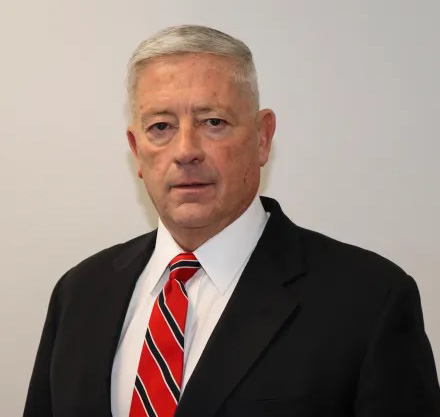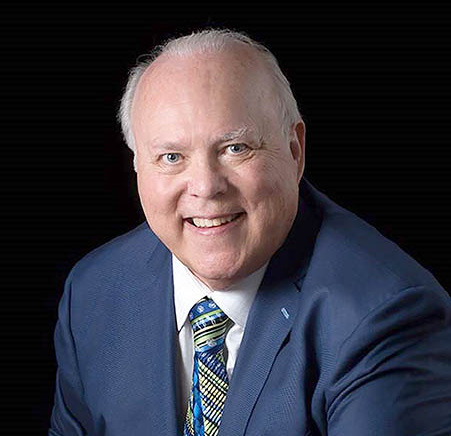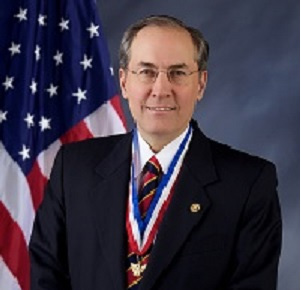Scouting America Range and Target Activities for Summer Camp and Year-Round Programs
Scouting America range and target activities personnel should be familiar with each of the documents listed below. Please click on the links to download them. Use the publication with the newest copyright date for the policy.
For any questions regarding these documents, email outdoorprograms@scouting.org.
National standards website:
Range & Target Activities FAQs
FAQs Regarding Program Updates 9/1/24
Q: Why are range and target activities (shooting sports) part of Scouting’s programs?
A: Range and target activities provide Scouting the opportunity to instruct critical safe firearm handling to all age groups while also providing an opportunity for a Scout to learn self-discipline, concentration, mental discipline, self-reliance, self-esteem, problem-solving and responsibility. Teaching safe firearm handling includes conversations such as “What happens when you see a gun? Never touch the gun, leave it where it is, and tell an adult right away.” Scouting is committed to teaching youth how to be safe around firearms, whether at home, in their neighborhoods, or around the community.
Q: Why is Scouting updating its range and target activities (shooting sports programs) effective 9/1/2024?
A: With a focus on safety and delivery of a quality program, these program adjustments aim to simplify and further standardize range and target activities, thus enhancing the overall experience for Scouts and Scouters alike.
Q: Why is the name of shooting sports programs changing to Range & Target Activities?
A: This new name reflects both where these activities take place (on established ranges) and what these activities are.
Q: What is a commercial firearm range?
A: A commercial firearm range is a supervised facility that offers a controlled environment for safe firearm practice. It will provide shooting lanes, targets, and may offer equipment rentals and training in safe firearm handling and marksmanship. Standard operating procedures are required for each firearm type used on-site. Scouting’s range and target activities must follow all of Scouting’s range and target activities policies or range standard operating procedures that are equivalently stringent, including no variation from Scouting’s limitations on firearms used. These ranges may be operated by a licensed business, a government entity or non-profit.
Q: My Scouts BSA troop wants to conduct a weekend activity focused on the Rifle Shooting merit badge, can we still host this event after September 1, 2024?
A: Yes. Scouts BSA troops can offer these activities with the required supervision certifications indicated in the BSA Shooting Sports Manual at either a nationally authorized camp property range(s) or at a commercial firearm range. Reminder- your unit must also have someone who has completed the online Range Activity SAFEty training. This trained adult leader must be present at the range. Note this training does not replace the requirements for certified NRA firearms instructors and range safety officers. This training will be available beginning 9/1/2024.
Q: Our Venturing crew is interested in participating in a pistol program. Is it still possible for us to do so?
A: Yes, Venturing crews participate in the NRA FIRST Steps Pistol Orientation at an accredited camp program (day camp, short-term camp, long-term camp) or a council organized one day event. Reminder, effective 9/1/2024, unit-level sponsored/planned Venturing and Sea Scouting pistol programs are prohibited.
Q: What is a nationally authorized camp property?
A: A national authorized camp property is defined by the National Camp Accreditation Program standards in SA-001. This definition is “A camp property includes any property over which a BSA council exercises long-term control that is made available to BSA units or individuals for use in BSA-branded program activities.” For full information on what is a nationally authorized camp property, please review the entire NCAP standard SA-001.
Q: How does Scouting define “firearm”?
A: Firearms include pellet rifles, airsoft (any type), rifles, pistols, shotguns, and muzzle loading rifles and shotguns. While Scouting does not define a BB gun or “BB device” as a firearm, some states, counties, or jurisdictions may regulate BB guns as firearms, depending on their design and capabilities. Councils must review and follow any local regulations before conducting programs.
Q: What is personal ammunition?
A. Personal ammunition is ammunition supplied by an individual. This does not include donations for use by a council. Any donations received should be appropriate for the firearms used by the council on its specific range(s) and must be donated in its original manufacturer’s packaging and should not be used past the shelf or storage life indicated by the manufacturer.
Q: Can we use personal firearms at nationally authorized camp properties for demonstration purposes during NRA training courses?
A: Yes, personal firearms may be used for classroom demonstration purposes only during NRA training programs at nationally authorized camp properties but may not be used for live fire.
General
Q: What are the standards of supervision required range and target activities for camps and camp programs?
A: The standards can be found in the National Camp Accreditation Program (NCAP) standards for the current year. These standards can be found at https://www.scouting.org/outdoor-programs/camp-accreditation/
Cub Scout and Webelos Scout FAQs
Q: What range and target activities can Cub Scouts participate in?
A: Cub Scouts can participate in shooting sports programs in a council or district event only and is not approved as a unit event. Please refer to the National Range and Target Activities Manual and the Guide to Safe Scouting Age Appropriate chart for details.
Q: Can Cub Scouts of any rank shoot shotguns or .22-caliber rifles in resident camps, day camps, or unit activities?
A: No, these activities do not meet the age appropriate guidelines for Cub Scouts at any rank.
Q: What shooting sports programs can Webelos and Arrow of Lights participate in?
A: Webelos and Arrow of Light Scouts can use pellet rifles, BB-gun rifles, slingshots, and archery, under the proper supervision, which must be conducted as part council or district event only and is not approved as a unit event. Appropriate catapults can be used during a unit-organized event. (Refer to the Guide to Safe Scouting for specific guidelines)
Q: How do I find a range officer for my Cub Scout pack?
A: Cub Scout range and target activities must be conducted at a council or district level and is not approved as a unit activity. If your pack is interested in helping to organize a BB-gun or archery event, please contact your local council’s range and target activities chairman or range activities director for information on the council’s year-round range and target activities.
Q: How can I get trained to run the Cub Scouts BB-gun or archery range at a day camp, short-term or long-term camp?
A: Contact your local council range and target activities chairman to find out where and when the Cub Scout Range Master Training will be held.
Q: What type of training do I need to help in the Cub Scout day camp, short-term or long-term camp programs?
A: You need to be a trained as a Cub Scout Range Master. This training is conducted by a National Camp School range activities director or a NRA Rifle Instructor for BB Guns, and USA Archery Level 1 Instructor for archery.
Q: How long does the Rangemaster training take?
A: The training is 3 hours for Cub Scout archery and 4 hours for Cub Scout BB gun. You may be certified in either discipline or you can be certified in both.
Scouts BSA FAQs
Q: Can a troop participate in firearms and archery activities year-round?
A: Yes, in fact range and target activities are very popular activities for our youth. We encourage units to offer them as part of their year-round program—offering recreational shooting, not just merit badge instruction. Proper supervision is required for troops to organize the event. Use the National Range and Target Activities Manual as a reference so you can safely conduct these activities.
Q: Can troops use catapults, slingshots, or air rifles?
A: Yes. Use the National Range and Target Activities Manual as a reference so you can safely conduct these activities. Please also refer to any local laws and refer to the Guide to Safe Scouting and prohibited activity list before conducting any of these activities.
Q: How do I find a range officer or NRA instructor for my Scout troop?
A: Scouts can participate in these activities at a council camp property’s range(s) or a commercial range under the proper supervision. If your troop wants to have a range and target activity, please contact your local council or range and target activities committee for information on your council’s range and target activities and how they can support your troop.
Q: How can I get trained to run the Scout range at a Scouting America summer camp?
A: Contact your local council for information on your council’s range and target activities. Each council selects the staff leadership for its camp program. Range Activities directors must attend a National Camping School to be trained in shotgun, rifle, or muzzle loading disciplines.
Q: What type of training do I need to help my Scout troop take youth to an activity at a local commercial range or at our Scout camp?
A: You need to be an NRA certified instructor in the discipline with which you plan to help. NRA certifications in rifle, pistol, shotgun, or muzzle loading rifle, or NRA shotgun coach or rifle coach would be necessary. You must also have an NRA range safety officer certification for the person who is running the range. There must be two separate people running your event. The trainer is an NRA certified training counselor. You can find this person in your local council or by calling the NRA. You can also find more information in the National Range and Target Activities Manual in the sections regarding training.
Q: How long does the training take?
A: The training necessary to become an NRA certified instructor is based on the discipline taken. Basic instructor training is the first requirement and is six hours long. Rifle instructor training is 14 hours long, shotgun is 12 hours, pistol is 10 hours, and muzzle loading rifle, pistol, or shotgun may be 12 hours each. For more information, contact your local council or call NRA National Youth Program. The training necessary to become a BSA National Camping School range activities director is a week long. For more information, contact your local council.
Q: Can Scouts BSA troops hold a hunting trip?
A: No.
Venturing and Sea Scout FAQs
Q: Can Venturing crews or Sea Scout ships hold a hunting trip?
A: No.
Q: How do I find a range officer or NRA instructor for my Venturing crew or Sea Scout ship?
A: Venturing Scouts can participate in these activities at a council camp property’s range(s) or a commercial range under the proper supervision. If your crew or ship wants to have a range and target activity, please contact your local council or range and target activities committee for information on your council’s range and target activities and how they can support your unit.
Q: How can I get trained to run the Scout range at a BSA summer camp?
A: Contact your local council for information on your council’s range and target activities. Each council selects the staff leadership for its camp program. Range Activities directors must attend a National Camping School to be trained in shotgun, rifle, or muzzle loading disciplines.
A: You need to be an NRA certified instructor in the discipline with which you plan to help. NRA certifications in rifle, pistol, shotgun, or muzzle loading rifle, or NRA shotgun coach or rifle coach would be necessary. You must also have an NRA range safety officer certification for the person who is running the range. There must be two separate people running your event. The trainer is an NRA certified training counselor. You can find this person in your local council or by calling the NRA. You can also find more information in the National Range and Target Activities Manual in the sections regarding training.
Q: How long does the training take?
A: The training necessary to become an NRA certified instructor is based on the discipline taken. Basic instructor training is the first requirement and is six hours long. Rifle instructor training is 14 hours long, shotgun is 12 hours, pistol is 10 hours, and muzzle loading rifle, pistol, or shotgun may be 12 hours each. For more information regarding specific schedules and times, please contact your local council or call NRA National Youth Programs. The training necessary to become a BSA National Camping School range activities director is a weeklong program. For more information regarding this training, contact your local council.


